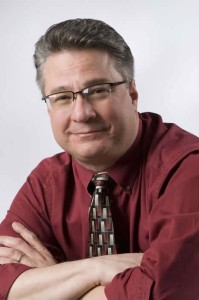‘Mad in America’s mission is to serve as a catalyst for rethinking psychiatric care in the United States (and abroad). We believe that the current drug-based paradigm of care has failed our society, and that scientific research, as well as the lived experience of those who have been diagnosed with a psychiatric disorder, calls for profound change.’ Here are some of my posts focused on Mad In America blogs.
The Power Threat Meaning Framework (PTMF)
 After nearly twenty years working as a neuroscientist, I closed down my university research laboratory at the beginning of the millennium. I no longer believe in the biomedical approach to helping people overcome addiction and mental health problems. I believe that long-term use of psychiatric drugs causes more harm than good. It’s not ‘what is wrong with you’, but ‘what has happened, or is happening, to you.’
After nearly twenty years working as a neuroscientist, I closed down my university research laboratory at the beginning of the millennium. I no longer believe in the biomedical approach to helping people overcome addiction and mental health problems. I believe that long-term use of psychiatric drugs causes more harm than good. It’s not ‘what is wrong with you’, but ‘what has happened, or is happening, to you.’
In January 2018, the Clinical Psychology Division of The British Psychological Society produced a very important paper, titled The Power Threat Meaning Framework and subtitled ‘Towards the identification of patterns in emotional distress, unusual experiences and troubled or troubling behaviour, as an alternative to functional psychiatric diagnosis.’
In my opinion, this document is a major breakthrough in the field, and the approach it describes makes so much more sense and is far superior to the biomedical approach to helping people overcome emotional distress (or so-called mental health problems).
‘Coyote’s Swing: A Memoir and Critique of Mental Hygiene in Native America’ by David Edward Walker
 I am pleased to announce the release of David Walker’s new book Coyote’s Swing, in which he condemns the U.S. mental health system’s partnership with the pharmaceutical industry and presents research on this system’s history of complicity with Native oppression.
I am pleased to announce the release of David Walker’s new book Coyote’s Swing, in which he condemns the U.S. mental health system’s partnership with the pharmaceutical industry and presents research on this system’s history of complicity with Native oppression.
Here is the press release, author biography, and a review (NB. I have broken up some of the long paragraphs to make online reading easier):
Psychologist’s Experiences and Research Expose How Western Mental Health Ideology Threatens Native Lives and Culture
‘PULLMAN, Wash.— David Edward Walker combines firsthand experiences as a consulting psychologist with rare history and sociocultural critique to expose how the U.S. mental health system reframes Native American reactions to oppression and marginalization into “mental disorders” and “mental illness.”
‘What Happened? What Mental Health is Really About’: Bill Saunders
 Here is the Forward of a book written by Perth Clinical Psychologist Bill Saunders, What Happened? What Mental Health is Really About. This is a really important book, essential reading for anyone interested in mental health or psychological wellbeing. I agree with all of Bill’s statements below about mental health.
Here is the Forward of a book written by Perth Clinical Psychologist Bill Saunders, What Happened? What Mental Health is Really About. This is a really important book, essential reading for anyone interested in mental health or psychological wellbeing. I agree with all of Bill’s statements below about mental health.
‘On most mornings when writing this book I’d get up at first light and go for a ‘clear the head run.’ Running is a great way to think; especially about writing. I’d begin the run ‘thinking’ about how to address an issue and then somewhere in the run I would start ‘having thoughts’ that brought clarity.
One day, wending my way back to the beachside house that I was using as a writer’s retreat, I saw the following statement written on a blackboard that normally advertised the local golf club’s menu specials.
“The standard you walk past is the standard you accept.”
I guiltily knew that the message applied to me. I knew that for many years, I had kept quiet about troubling things. I knew that I had, for a couple of decades at least, had a growing disquiet about how we manage mental health. But, I had remained silent. I went back that morning and I wrote with increased vigour. I toughened the book up.
My Journey: 1. A Career in Neuroscience
 Outlines my neuroscience career, from a three-year Postdoctoral Fellowship with Nobel Laureate Arvid Carlsson in Sweden to running my own research laboratory for 14 years in the UK. Our laboratory’s research was focused on the regulation and function of brain dopamine systems, with a particular interest in addiction. In 2000, I closed my laboratory, as I did not think that neuroscience research was helping people overcome addiction. (3,492 words)
Outlines my neuroscience career, from a three-year Postdoctoral Fellowship with Nobel Laureate Arvid Carlsson in Sweden to running my own research laboratory for 14 years in the UK. Our laboratory’s research was focused on the regulation and function of brain dopamine systems, with a particular interest in addiction. In 2000, I closed my laboratory, as I did not think that neuroscience research was helping people overcome addiction. (3,492 words)
1. Learning About Drugs and the Brain
In the third year of my Psychology undergraduate degree at the City of London Polytechnic (now London Guildhall University) in the mid-1970s, I did not know whether I wanted to go on to become a Clinical Psychologist or conduct research in Psychopharmacology (study of brain function, and the effects of drugs on brain and behaviour).
I loved my undergraduate Abnormal Psychology course—although I now hate the words ‘abnormal’ psychology—and decided that I ultimately wanted to help people overcome psychological problems.
Three Things to Know About Mental Health and Trauma
I just love this film clip from the Hogg Foundation for Mental Health that involves Dr. Bruce Perry talking about mental health and trauma. Here are the three major things that Bruce points out:
- Trauma sharing is a way for storytellers, not experts, to lead the conversation. Storytellers change the narrative.
- Sharing about trauma seems trendy, but it speaks to a deeper truth.
- Those with a platform should use it.
‘Human beings are human beings. We don’t change our minds because a bunch of scientists publish a set of recommendations and issue them. Honestly, this is no offence to the Heart Foundation or any other Foundation but you’ve all been publishing white papers about topics for years. Those don’t change public opinion. What changes people are the storytellers in our society.
Good relationships are the key to healing trauma | Karen Treisman | TEDxWarwickSalon
Dr Treisman talks about the importance of forging good relationships and effective society-wide systems when it comes to understanding and healing trauma. Dr Karen Treisman, a Clinical Psychologist, has worked across the globe with groups ranging from adopted children to former child soldiers to survivors of the Rwandan Genocide. TEDx Talks. [17’21”]
How Childhood Trauma Can Make You A Sick Adult | Big Think | Big Think
Dr. Vincent Felitti, the co-founder of the Adverse Childhood Experiences (ACE) study, details the connection between childhood trauma and negative health outcomes in adulthood. Big Think. [7’15”]
Why I train grandmothers to treat depression: Dixon Chibanda
Dixon Chibanda is one of 12 psychiatrists in Zimbabwe—for a population of more than 16 million. Realizing that his country would never be able to scale traditional methods of treating those with mental health issues, Chibanda helped to develop a beautiful solution powered by a limitless resource: grandmothers. In this extraordinary, inspirational talk, learn more about the friendship bench program, which trains grandmothers in evidence-based talk therapy and brings care, and hope, to those in need. TED talk, 8 March 2018. [12’24”]
‘Healing is in Our Stories’ by Deron Drumm RIP
 Here’s an excellent article by the late Deron Drumm about the importance of Stories in helping people recover and change the mental health system which appeared on Mad in America. I first posted this article on this website in December 2014.
Here’s an excellent article by the late Deron Drumm about the importance of Stories in helping people recover and change the mental health system which appeared on Mad in America. I first posted this article on this website in December 2014.
‘”It’s important that we share our experiences with other people. Your story will heal you and your story will heal somebody else. When you tell your story, you free yourself and give other people permission to acknowledge their own story.” Iyanla Vanzant
I have spent a lot of time talking to politicians, media members and those working in the mental health system about the failings of the current method of viewing and treating emotional distress. I have come to the conversations armed with stats and outcomes about the bio-medical paradigm. I have found that the people I speak with do not doubt the facts conveyed. They seem to agree that the current state of affairs is not good. The difference is that I think the tragic outcomes demonstrate the failure of the current system. The folks I talk to tend to think things are so bad because “mental illness is just that serious.”
The Politics of Personal Distress
 A couple of months ago I came across an excellent article in the Guardian newspaper by UK clinical psychologist Sanah Ahsan entitled ‘I’m a psychologist – and I believe we’ve been told devastating lies about mental health’. The article is well worth reading:
A couple of months ago I came across an excellent article in the Guardian newspaper by UK clinical psychologist Sanah Ahsan entitled ‘I’m a psychologist – and I believe we’ve been told devastating lies about mental health’. The article is well worth reading:
‘Society’s understanding of mental health issues locates the problem inside the person – and ignores the politics of their distress’
We are living, we’re told, through a “mental health crisis”. Mental health services cannot cope with the explosion of demand over the past two years: 1.6 million people are on waiting lists, while another 8 million need help but can’t even get on these lists. Even children are showing up at A&E in despair, wanting to die.
But there is another way to see this crisis – one that doesn’t place it firmly in the realm of the medical system. Doesn’t it make sense that so many of us are suffering? Of course it does: we are living in a traumatising and uncertain world. The climate is breaking down, we’re trying to stay on top of rising living costs, still weighted with grief, contagion and isolation, while revelations about the police murdering women and strip-searching children shatter our faith in those who are supposed to protect us.
‘I was a heroin addict and had given up on myself. Then suddenly, briefly, I felt a desire to live’ by John Crace

‘What I heard at Narcotics Anonymous changed my life’ … John Crace. Photograph: Pauline Keightley/Bridgeman Images
Yesterday, I posted a blog from one of my favourite journalists, John Crace, the Guardian’s parliamentary sketch writer, about his past heroin addiction. John had been in recovery for 32 years at the time of writing that article. Here is a second article by John about his addiction and recovery, which appeared on 27 December 2021.
‘At my lowest point, I sought self-annihilation. I was saved at the last moment by two of the few people I had not pushed away.
It was a Saturday night in early October 1986. My 30th birthday party, or what passed for it. Just a handful of junkies and my few remaining friends sitting on the floor of a grey, bare room in a flat in south London. I had thought it would be fun, as, for once, there was no shortage of heroin. Instead, I felt wretched.
‘What Happened?: What mental health is really about’ by Bill Saunders
 Some of you will will know that I believe that the biomedical approach to mental health—using drugs to treat what are considered to be biochemical disorders—causes more harm than good.
Some of you will will know that I believe that the biomedical approach to mental health—using drugs to treat what are considered to be biochemical disorders—causes more harm than good.
Over this weekend, I have been reading an excellent book by Clinical Psychologist and educator Bill Saunders, a Perth-based man. What Happened?: What mental health is really about is well-worth reading.
‘If you consult a psychiatrist for assistance with a mental health problem you will be subjected to the “What’s wrong with you?” approach. You will be assessed, diagnosed and then treated, most commonly with a pill to combat your purportedly biologically based ill.
Recovery as an Organising Construct – Bill White Interviews Larry Davidson
 William L White and Larry Davidson are two of my recovery ‘heroes’. In this 2013 paper from his website, Bill interviews Larry about mental health recovery. As the former says, Larry was ‘one of the earliest pioneers in studying and promoting the concept of recovery related to severe mental illness.’ Here are Larry’s answers to two of Bill’s questions. [I have shortened the paragraphs for easier online reading.]
William L White and Larry Davidson are two of my recovery ‘heroes’. In this 2013 paper from his website, Bill interviews Larry about mental health recovery. As the former says, Larry was ‘one of the earliest pioneers in studying and promoting the concept of recovery related to severe mental illness.’ Here are Larry’s answers to two of Bill’s questions. [I have shortened the paragraphs for easier online reading.]
‘Bill White: How is the emergence of recovery as a new organizing paradigm changing the design and delivery of mental health services in the United States?
Larry Davidson: I think the biggest change that the recovery paradigm has introduced, and the change that poses the most difficulty for traditional clinicians to understand and accept, is that recovery is primarily the responsibility of the person rather than the practitioner.
‘The Four Stages of Recovery’ by Mark Ragins
 Here’s a blog I first posted back in May 2013, not long after this website first launched. Mark Ragins is a leading recovery figure in the mental health field. He was a pioneer in setting up MHA Village, a recovery community based in Los Angeles. His writings are well worth a read. Here is what Mark has to say about stages of recovery in an article entitled The Road to Recovery. What Mark says here is just as relevant to people recovering from addiction.
Here’s a blog I first posted back in May 2013, not long after this website first launched. Mark Ragins is a leading recovery figure in the mental health field. He was a pioneer in setting up MHA Village, a recovery community based in Los Angeles. His writings are well worth a read. Here is what Mark has to say about stages of recovery in an article entitled The Road to Recovery. What Mark says here is just as relevant to people recovering from addiction.
‘Recovery has four stages: (1) hope, (2) empowerment, (3) self-responsibility and (4) a meaningful role in life.
‘A Journey Toward Recovery: From the Inside Out’ by Dale Walsh
 I’ve been away visiting family this weekend and haven’t had a chance to prepare a new set of blog posts for this week. I therefore thought I would re-post some of my old favourites from the past this week, which will give me time to prepare new ones for next week.
I’ve been away visiting family this weekend and haven’t had a chance to prepare a new set of blog posts for this week. I therefore thought I would re-post some of my old favourites from the past this week, which will give me time to prepare new ones for next week.
One of my favourite articles about recovery was written by Dale Walsh back in 1996 which really summed up what recovery and recovery principles mean to a person who has been suffering from mental health problems. I thought I would highlight some of the main points here.
The Problem
‘For many years I believed in a traditional medical model. I had a disease. I was sick. I was told I was mentally ill, that I should learn to cope with my anxiety, my depression, my pain, and my panic. I never told anyone about the voices, but they were there, too. I was told I should change my expectations of myself and realize I would always have to live a very restricted life.
Read More ➔
‘What’s Wrong With You? Nothing. What Has Happened to You? Something.’ by Dr Michael Cornwall
 I believe strongly in the words of this title. This blog first appeared on the Mad in America website and I posted it on this website in May 2014.
I believe strongly in the words of this title. This blog first appeared on the Mad in America website and I posted it on this website in May 2014.
‘Licensed Mental Heath professionals are trained and are required to find out what is wrong with people.
Unfortunately, 90 percent of the people who could benefit from professional mental health services, in my opinion, are suffering from feeling something is wrong with them. They already feel bad about themselves, like they are failing in life. They often feel a lot of guilt, shame and self-loathing. They are often already judging themselves.
They may have been overwhelmed by losses, by life events, or have not had their crucial needs met, or have been unloved, neglected, bullied, abused or mistreated by family and others. Because of what has happened to them, they may struggle to not identify themselves as someone who’s lot in life is to be rejected or harmed by others.
‘Lost Connections’ by Johann Hari
 One of the most interesting books I have read on mental health is Lost Connections: Uncovering the Real Causes of Depression – and the Unexpected Solutions by Johann Hari. Johann points out that depression is NOT caused by a chemical imbalance in the brain, as is argued by drug companies and many biologically-oriented psychiatrists and doctors.
One of the most interesting books I have read on mental health is Lost Connections: Uncovering the Real Causes of Depression – and the Unexpected Solutions by Johann Hari. Johann points out that depression is NOT caused by a chemical imbalance in the brain, as is argued by drug companies and many biologically-oriented psychiatrists and doctors.
Moreover, there is little, if any, scientific evidence that ‘antidepressants’ alleviate depression. [Some credible scientists suggest they give a temporary relief to a minority of users.] Johann talks about social factors that cause depression and considers new socially-related ways of alleviating the problem.
Johann describes seven forms of disconnection that cause depression:
Factors Facilitating Recovery: Mutual Support
 I continue with my series of blog posts relating to the factors that facilitate recovery from addiction, which I have detailed in the second last chapter of my eBook Our Recovery Stories: Journeys from Drug and Alcohol Addiction. These factors are also relevant to recovery from mental health problems.
I continue with my series of blog posts relating to the factors that facilitate recovery from addiction, which I have detailed in the second last chapter of my eBook Our Recovery Stories: Journeys from Drug and Alcohol Addiction. These factors are also relevant to recovery from mental health problems.
“Acceptance is just one aspect of the fifth key factor underlying recovery, being supported by others. People in recovery stress the importance of having someone believe in them, particularly when they don’t believe in themselves. They also stress the importance of having a person in recovery as a mentor or role model as they travel their journey.
We are not the Slaves of our Brains: Peter Kinderman
 In my last blog post, I criticised the approach of the National Institute of Drug Abuse (NIDA) in the USA in treating addiction as a medical disorder. Of course, it is not just addiction that is thought to be due to brain dysfunction by many neuroscientists, psychiatrists and other medical practitioners. Mental health problems are considered to reflect neurotransmitter dysfunction by many people in these professions. And Big Pharma (the drug industry) encourages this view.
In my last blog post, I criticised the approach of the National Institute of Drug Abuse (NIDA) in the USA in treating addiction as a medical disorder. Of course, it is not just addiction that is thought to be due to brain dysfunction by many neuroscientists, psychiatrists and other medical practitioners. Mental health problems are considered to reflect neurotransmitter dysfunction by many people in these professions. And Big Pharma (the drug industry) encourages this view.
I am reading a fascinating book at the moment, A Manifesto for Mental Health: why we need a revolution in mental health care by Clinical Psychologist and academic Peter Kinderman. I thought the following quote from Peter’s book to be particularly appropriate to what I said about brain and behaviour in my last blog post. [I have shortened Peter’s paragraphs to make the quote easier to read online.]


